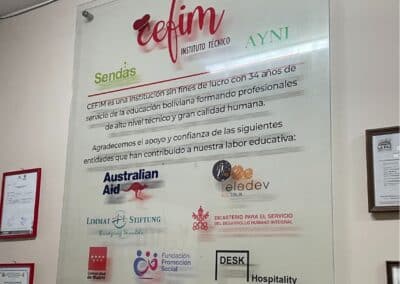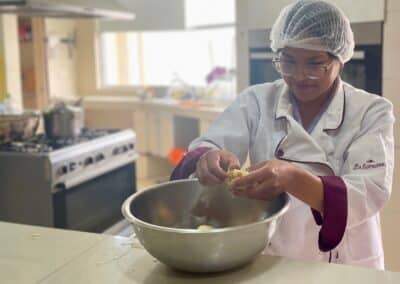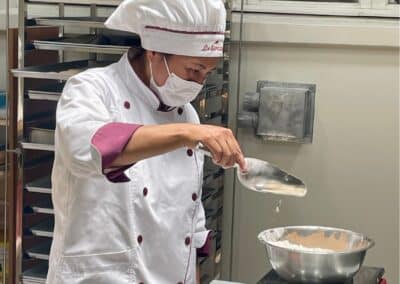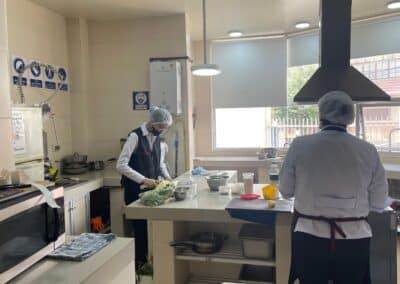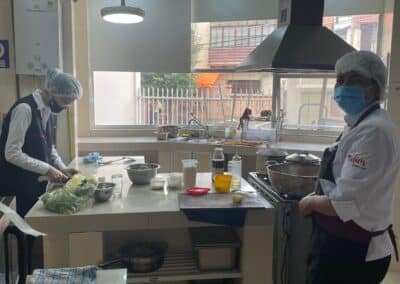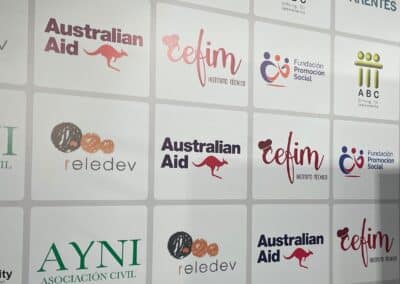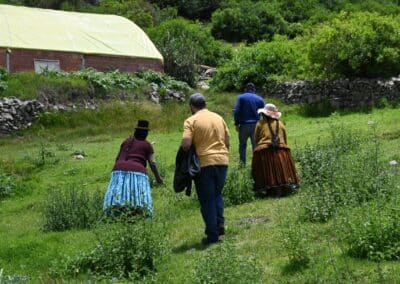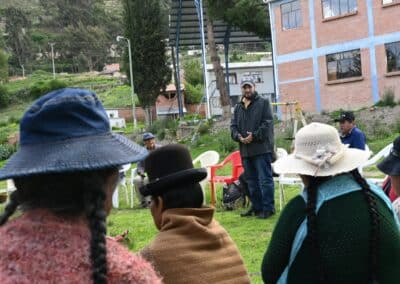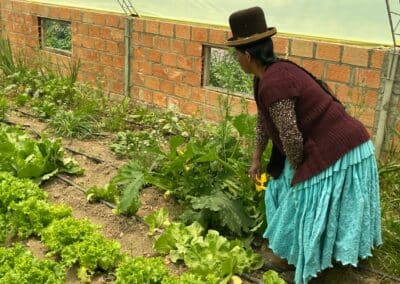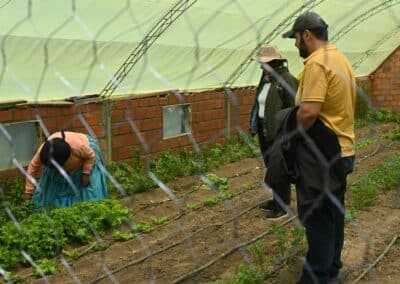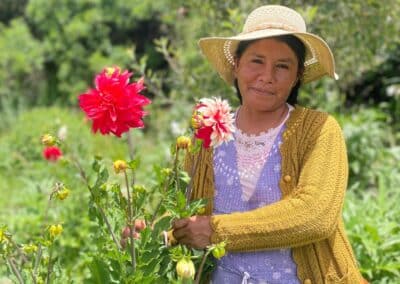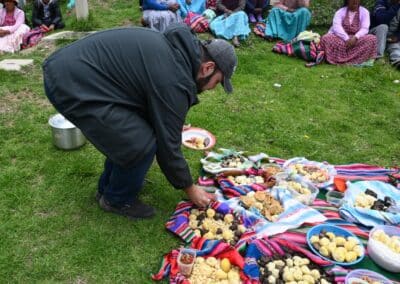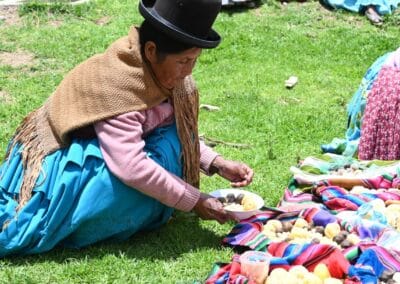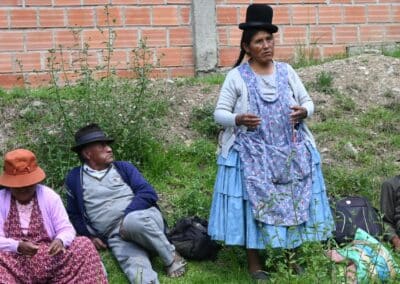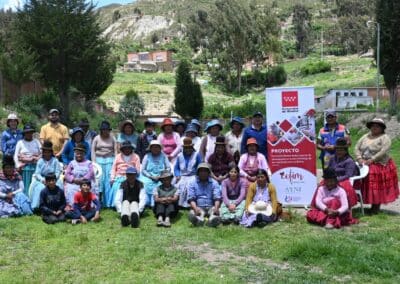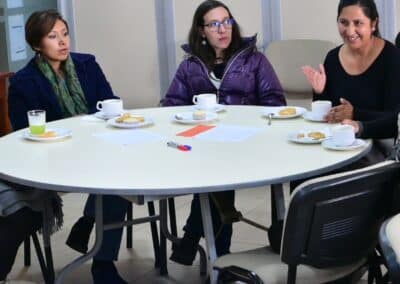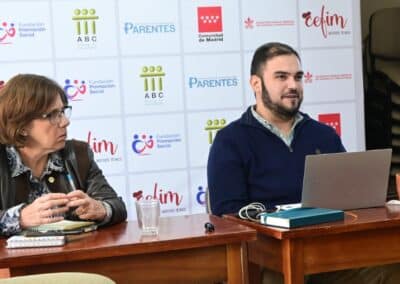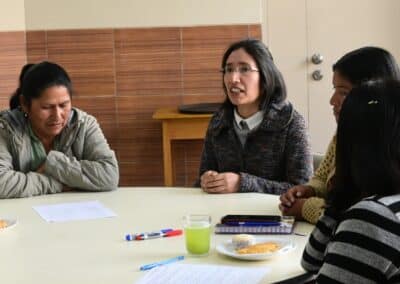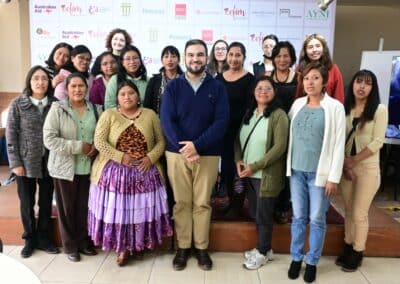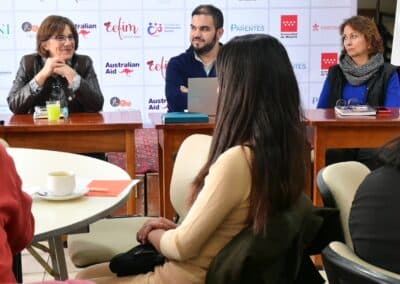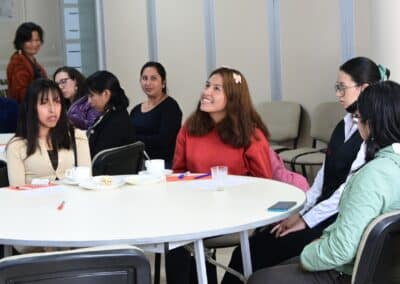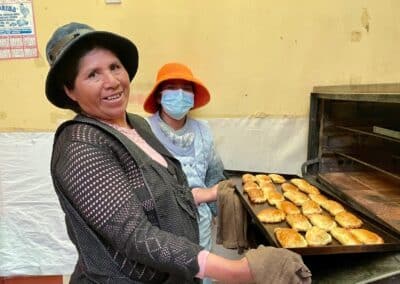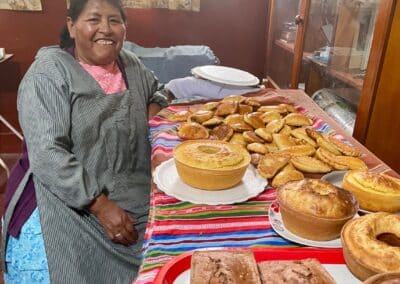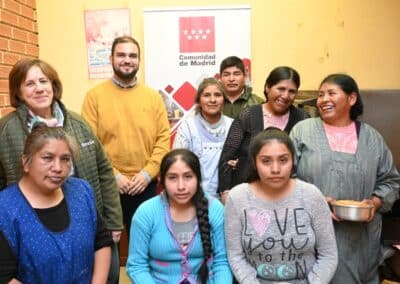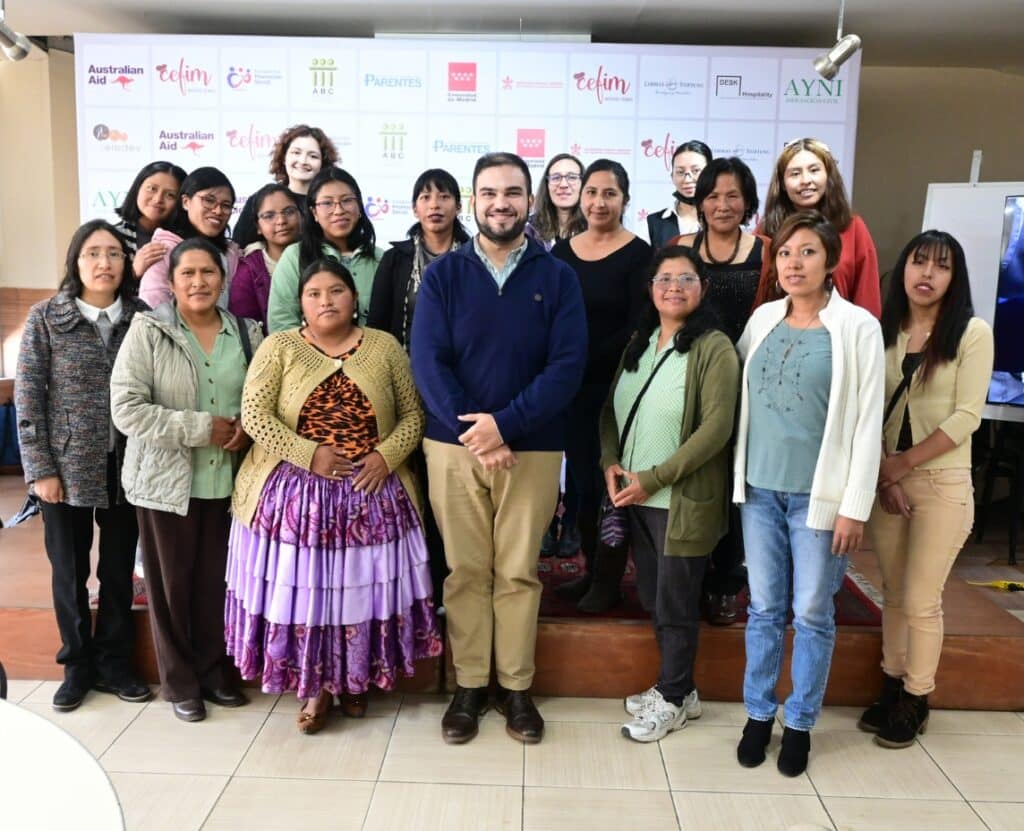
Throughout this past year, 225 indigenous Bolivian women of Aymara descent have had the opportunity to train as cooking and hotel and catering technicians and, thus, have the necessary training to be able to access a job or self-employment in conditions of gender equality and safety. It is worth noting that, with their effort and dedication in preparing themselves professionally through this program, these women will have the capacity to face and overcome any discriminatory labor barriers they may encounter, also adding value to the intangible cultural heritage they bring due to their Aymara ancestry.
This has been possible thanks to their participation in a technical-dual vocational training program that has been developed within the framework of the project that we have implemented in Bolivia, in collaboration with the CEFIM Technical Institute and with funding from the Regional Government of Madrid, and which ended on January 31.
Thanks to this initiative, these women have acquired the basic and professional competencies and skills to participate in the labor market through access to a job or by starting their own business. In addition, this project has established a support network for the participants through alliances with companies, and has also worked on improving the quality of training aimed at employment and entrepreneurship through the training of those responsible for this technical-dual training.
One of the most significant was his visit to the community of Ñuñu Mayani, originally from the municipality of Mecapaca. Its inhabitants, of Aymara ethnicity and language, have participated in this project by transmitting their gastronomic knowledge, techniques and culture to the students of the program, who have had the opportunity to broaden their culinary knowledge by integrating their traditional knowledge. With this collaboration, it has been possible to reinforce and empower their cultural identity and incorporate the ancestral knowledge of the Aymara women into the professional work of the students. It should be noted that most of these young students belong to rural communities that migrate to settle in peri-urban areas of La Paz.
Moreover, through this contact between the students and the Aymara communities, it is hoped to promote local products from these rural areas, incorporating them into recipes and ensuring a direct connection between the rural women producers and the future professionals who will work in La Paz. This is undoubtedly a key action to help make visible the fundamental role played by rural women in relation to food security, as well as to strengthen the ties established between the young migrant women and their communities of origin.
During this trip to Bolivia, Ivan also had the opportunity to meet with some students of the technical-dual vocational training and with entrepreneurs who have participated in a Get Ahead training program endorsed by the International Labor Organization (ILO) and who are coaching facilitators. They have accompanied and supported low-income women entrepreneurs in preparing their business plans and getting them off the ground.
Finally, Iván was also able to visit a bakery and pastry shop established by 15 women belonging to the Virgen Milagrosa Association in El Alto, in the metropolitan area of La Paz. These women, also trained thanks to the Get Ahead program within the framework of our project, have acquired basic knowledge about product development, accounting, business plans, production and logistics costing, etc., which have enabled them to start their own business. The generation of income through self-employment has a direct impact on the economic autonomy of these women, as well as on their empowerment when making decisions and on the public visibility of their work and their contribution to Bolivian society. Moreover, this opportunity allows them to contribute to the improvement of the family economy and the quality of life in their homes, facilitating the access of all family members to better food and education.





